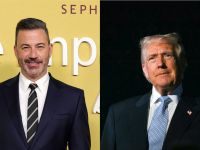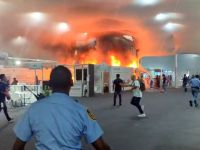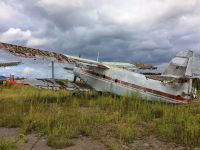Beijing is confident US President-elect George W. Bush will emulate his predecessor Bill Clinton by toning down hawkish campaign rhetoric on China once he moves into the White House, analysts said Thursday.
Bush has been a strong critic of the current US administration's policy of engaging China, which he sees as a rival rather than a partner.
In memorably hostile language, Bush has condemned China's communist rulers as a government that "can be alarming abroad and appalling at home."
But analysts believe Bush will tone down his criticism and take a pragmatic approach to the vital relationship with Asia's emerging power.
"Bush may not actually use the word 'engagement,' but in actual practical terms he will be carrying on US engagement with China," said Guo Xiangang, an expert on Sino-US relations at the government-backed China Institute of International Affairs.
"Clinton in his campaign was vehemently anti-Chinese, but once he became president he started representing US national interests and moderated his views."
Thousands of American jobs are created by US exports to China, and for a free-trade oriented Republican administration, that will outweigh any other considerations, analysts said.
In a similar vein, Chinese President Jiang Zemin congratulated Bush on Thursday, only hours after the 36-day US election process had ended, promising to work with the new American leader.
"During your presidency, I am ready to work together with you to promote a sound and stable development of China-US relations," Jiang said in the message.
This spirit of cooperation may be needed in the next four years, since the two nations -- despite all the interests they have in common -- also face a long list of potentially divisive issues, analysts said.
These include human rights, persecution of religious -- and especially Christian -- minorities, Tibet, economic and trade frictions, spying charges, and, overshadowing everything else, Taiwan.
China sees Taiwan as a renegade province and has repeatedly threatened military attack if the island were to formally declare independence.
Four and a half years ago, the United States sent naval forces near the Taiwan Straits, after China lobbed missiles into waters near the island in an attempt to intimidate its population.
"The only thing that is really dangerous, that could lead to a conflict of some kind, is the Taiwan Straits," said Paul Harris, a US foreign policy researcher at Lingnan College in Hong Kong.
Still, this is a powder keg that is unlikely to blow up, since China has moderated its tactics towards Taiwan, while Bush's likely security team will have considerable experience as many served under his father, he argued.
"These are not stupid people, and they won't find a direct confrontation with China in the Taiwan Straits is in US interests," said Harris.
Sino-US ties could be strained, too, if Bush were to decide to go ahead with ambitious plans to develop a ballistic missile defense system, an option left open from the Clinton administration.
An Asian version of this system, originally aimed mainly at protecting the United States and its allies from North Korean missile attack, could trigger China's wrath, because it could make Taiwan invulnerable to missile diplomacy.
"The threat from North Korea has been diminished, so if the Republican administration decides to go ahead with the system, it will clearly be aimed at China," said Guo, the Beijing-based analyst. "And if they deploy it against China, it's not going to help bilateral relations."
Much depends on the foreign policy advisers Bush picks in the coming weeks, according to analysts.
Bush could decide to pick his own father, a top US representative in Beijing in the 1970s, as a high-profile envoy in crisis situations, analysts said.
Another possible choice, mulled in the media, is to give the post of national security adviser to Condoleezza Rice, the top Soviet specialist on the elder Bush's National Security Council.
"Rice's formative years were spent studying Soviet policies. It is possible that she will see China as, for lack of a better word, the new Soviet Union," said Harris -- BEIJING (AFP)
© 2000 Al Bawaba (www.albawaba.com)







